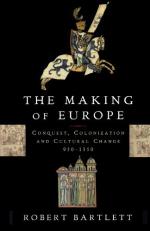|
This section contains 666 words (approx. 3 pages at 300 words per page) |

|
Origins. During the eighteenth century, Enlightenment thinkers were confident that the human mind could discern all forms of truth through the use of reason alone. To these thinkers the study of nature, not supernatural revelation, promised the most reliable answers to the fundamental questions of human existence. These scholars, who came to be known as "neologians" or "innovators," questioned the doctrines of biblical inspiration that had been articulated since the Age of Reformation. They also challenged the supernaturalism of Christianity in all its forms, including the historic Christian doctrines of the Trinity, the deity of Christ, the virgin birth, the miracles of Jesus, the resurrection, and the atonement. Historic Christianity underwent another round of criticism in the nineteenth century after the rapid expansion of international trade, recreational travel, and Christian missionary efforts brought Western Christians into closer contact with other world religions, which...
|
This section contains 666 words (approx. 3 pages at 300 words per page) |

|




